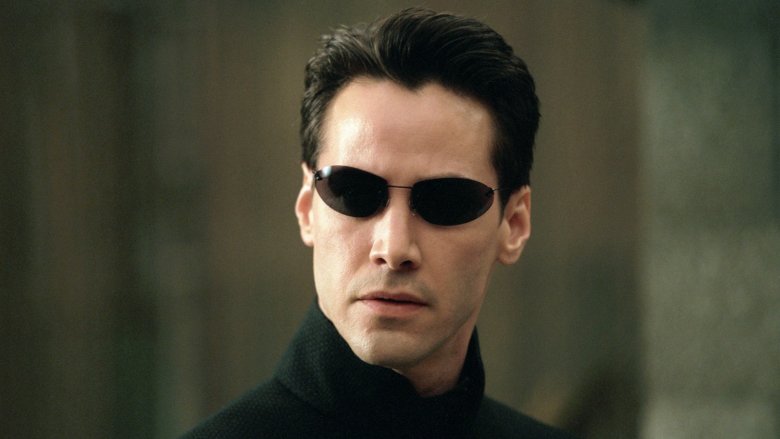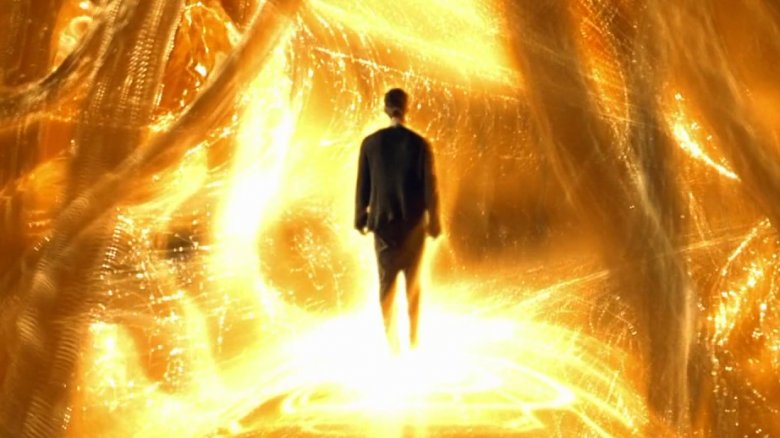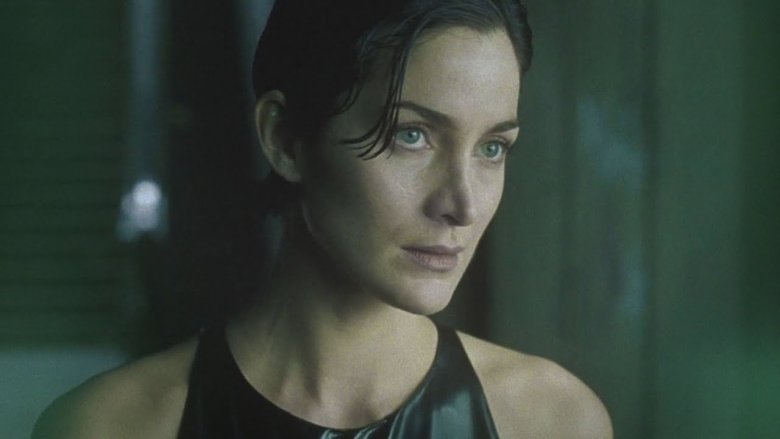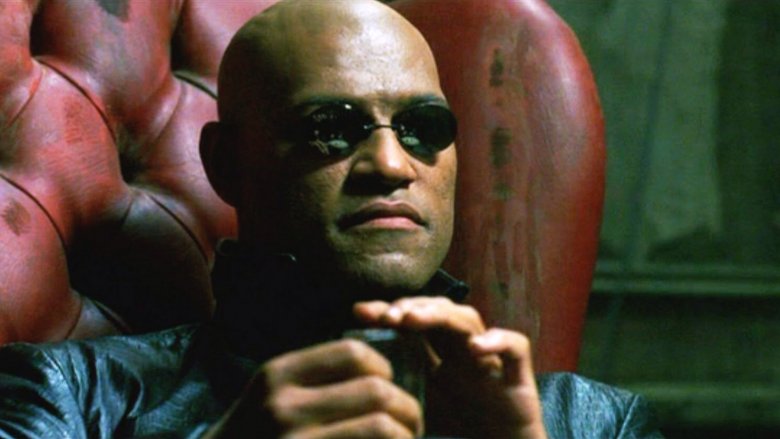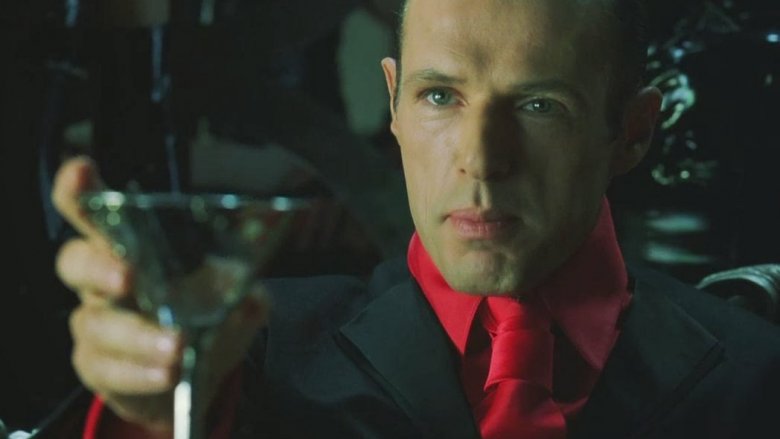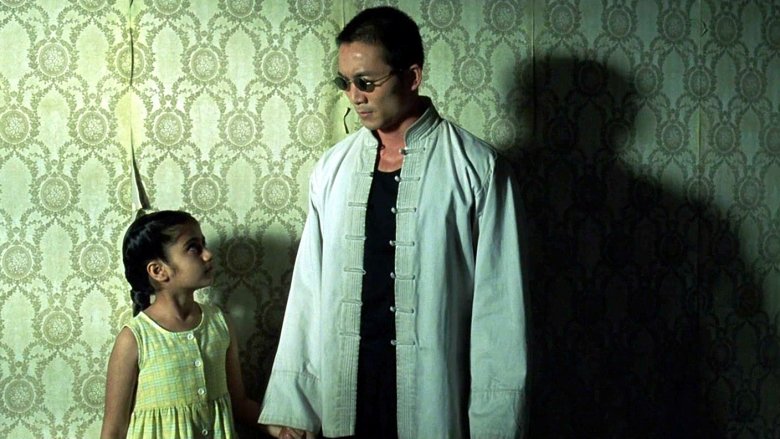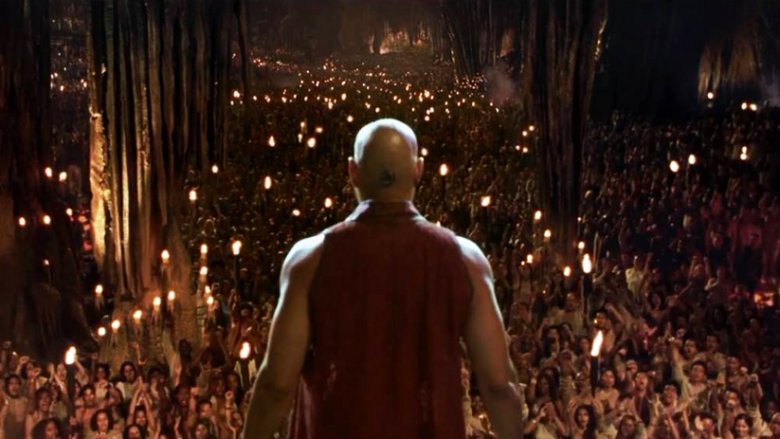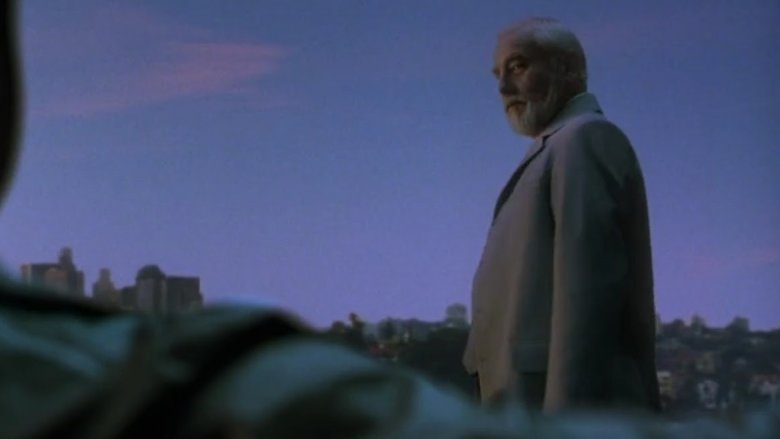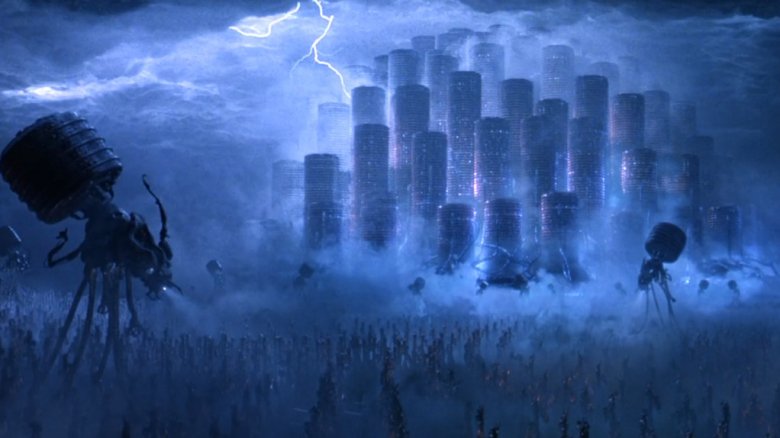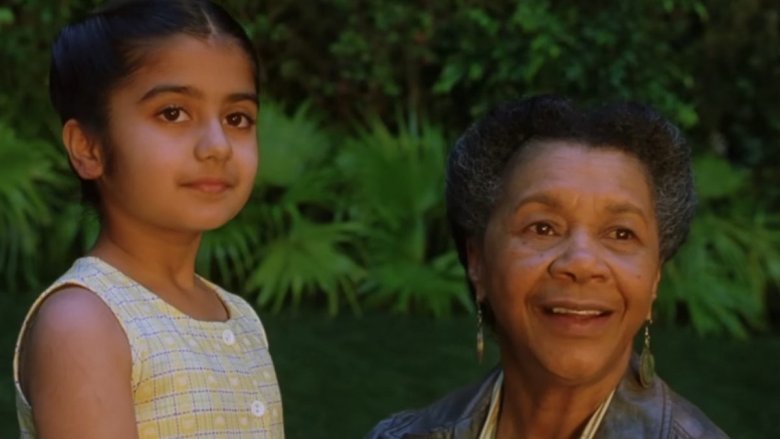The Biggest Questions We Want Answered In The Matrix 4
The jaws of fans everywhere dropped on August 20, 2019, when Warner Bros. announced that The Matrix co-creator Lana Wachowski is returning to the franchise that helped put her and her sister, Lilly, on the map. Yeah, she's coming back for a fourth Matrix film nearly two decades after The Matrix Revolutions ended the original trilogy. That news is massive all on its own, but the deal was sweetened by the reveal that Wachowski will be joined in her efforts by the original trilogy's stars, Keanu Reeves and Carrie-Anne Moss.
It's been 20 years since The Matrix changed genre cinema forever, and nearly that long since its two sequels, The Matrix Reloaded and The Matrix Revolutions, expanded the fictional universe and then reframed it, leaving behind plenty of unanswered questions that the fourth film will now get to play with. As The Matrix 4 looms, we're taking a look at some of the biggest questions we'd like the new film to answer, from how certain characters come back to how the world works in the wake of Revolutions' paradigm-shifting ending.
How will Neo return for The Matrix 4?
The news that one of The Matrix's original creators would return with a new story set in the universe she co-created was exciting enough, but Lana Wachowski was perhaps not the most exciting name connected to the news that a fourth film is on the way. That honor goes to Keanu Reeves, whose career is now enjoying a resurgence thanks to the John Wick franchise and the internet's overall obsession with him.
With all of that in mind, now that we know Reeves is returning for more of The Matrix, the big question is how does his character, Neo, come back after his apparent death in The Matrix Revolutions? The Oracle suggested we might see him again at the end of the last film, but his body was carried away by the Machines after he defeated Agent Smith and rebooted the Matrix, so how does that happen?
There are a number of ways the film could explain Neo's return, the most obvious of which is by telling us he didn't really die after all, and that the Machines ultimately nursed him back to health. Then there's the explanation that because of his status as "the One," Neo was always at least partially a software creation, the product of programming mixing with biology. Perhaps the software in him survived and reincarnated into the new Matrix. Whatever the case, we can't wait to see how we get him back.
How will Trinity come back to life in The Matrix 4?
Neo is the One, and the very nature of that superpowered designation opens up all manner of possibilities through which that character could return from the dead in a fourth Matrix film. The bigger question, then, is how will Carrie-Anne Moss return as Trinity? Her character was quite clearly dead after being impaled on machinery at the end of The Matrix Revolutions, and while she's an amazing warrior, she's not the One. So how does she come back?
Thankfully, the sci-fi realm of this franchise offers plenty of possibilities there, as well. Humans aren't born in a world controlled by Machines so much as they're grown, which leaves the door open for genetic engineering, cloning, and all manner of other things. Perhaps Trinity was replicated by Neo or by someone else for Neo. There's also the possibility that perhaps Trinity now only exists as software, a program within the Matrix conceived to replace her physical self, made from preserved data about her personality and appearance. However it happens, her return could ultimately be even more fascinating than Neo's.
Where is Morpheus?
While his chosen One and top lieutenant journeyed to the Machine City to put an end to the war in The Matrix Revolutions, Morpheus stayed behind to help with the final battle at Zion, arriving at the last minute to activate an EMP that effectively paused the battle so the humans could prepare for their last stand. When Neo reached a truce with the Machines, Morpheus was among the survivors of Zion and among the last surviving leaders of the free human race.
Laurence Fishburne, who played Morpheus in the original Matrix trilogy, was notably absent from the announcement of a new film. That doesn't necessarily mean he can't be in the movie, and he could still be announced as returning at a later date, but if Fishburne's not around, then what happened to Morpheus? The last film left him clearly positioned as a key leader in the fight to restore a human presence on Earth beyond Zion, so what happened between then and now? Did he die as part of that struggle? Did he die naturally? Does the story just not concern him? No matter what actually happened to Morpheus, he's too big of a presence in the franchise for the film to just ignore him, so we can't wait to see how The Matrix 4 explains what happened to everybody's favorite freedom fighter.
What happened to the rogue programs?
The Matrix Reloaded and The Matrix Revolutions established that the Matrix is full of rogue programs. Some of these are from much older versions of the Matrix, and they have their own agendas, plans, and often supernatural (to the eyes of someone inside the Matrix, anyway) abilities. The Oracle explained to Neo that these are the source of humanity's stories about vampires, werewolves, and other creatures, as the programs basically do as they please after refusing deletion.
When the Matrix rebooted at the end of Revolutions, we saw that both the Oracle and the Architect — the yin and yang programs that allowed the Matrix to thrive in the first place — were still present, but what about the rogue programs? Is the Merovingian still scheming within the next version of the simulation? Is the Trainman? What other rogue programs might have resisted deletion the last time around and are operating now? It'll be very interesting indeed to see the state of rogue programs in a new version of this world.
What's the deal with Seraph?
In The Matrix Reloaded, Neo met a character called Seraph (Collin Chou), a program serving and protecting the Oracle. The guy acted as an authenticator for her visitors by fighting them before they could see her. That way, they could understand who they truly were.
Over the courses of Reloaded and Revolutions, it was made quite clear that Seraph was unusual, even by the standards of other programs with strange abilities. When Neo looked at him through the Matrix's code, he saw a golden, burning light while everything else around Seraph was green, and at one point, one of the Merovingian's thugs referred to him as "wingless." In the multiplayer game The Matrix Online, it was revealed that Seraph acted as an agent in the first version of the Matrix, the "paradise" version, which basically made him an angel.
Though he no longer has his wings, Seraph's "angel" status makes him apparently second only to Neo in terms of fighting ability, and his status as a product of the first Matrix makes him one of the oldest programs in existence. So where is the guy now? Will he show up in The Matrix 4? He's a fascinating character, and it would be great to see the next film return to him as a key part of the mythos, expanding on what his abilities truly are and where his loyalties lie now.
What will human civilization look like in The Matrix 4?
Now that we've talked about the various characters in play for the return of the The Matrix to the big screen, let's talk about the various potential scenarios put in place by Revolutions and what they mean for the future of the series.
At the end of Revolutions, Neo managed to negotiate a peace between the Machines and the humans, the deal being that human civilization would be allowed to continue in some form, and that humans would now have a chance to leave the Matrix upfront. With that in mind, what does human civilization look like now? Granted, we don't know how long it's been since The Matrix Revolutions in the timeline of the new film, but let's just say for the sake of argument that two decades have passed. Is Zion still the only human city? Have humans found a way to survive on the surface after heavy pollution by the Machines? How much has the population increased? These are all worldbuilding questions that might only be dealt with in the background, but humanity's new freedom offers plenty of opportunities for the next story.
Has peace been maintained?
Neo's sacrifice and the defeat of Agent Smith at the end of The Matrix Revolutions created a new and potentially fragile peace between humans and Machines, and the Oracle said at the end of the film that the peace would simply last "as long as it can." The film doesn't have time to explore the implications of that statement or the arrangements of the peace agreement in any major detail, but the fourth film certainly could.
The biggest question, obviously, is whether the peace lasted, and if so, for how long? The Architect, of course, took a cynical view of things, so it's quite possible that he began at that very moment to explore new ways to subjugate and undermine humanity's future as supposedly "free" individuals. And since so much of the thematic weight of The Matrix is already tied up in themes of determinism versus free will, it's easy to see how that cycle would begin again. It's also possible that humans have used their newfound ability to leave the Matrix to begin a kind of cold war with the Machines, with the hope of wiping them out entirely. Whatever the case, it's doubtful that true peace has reigned.
Have the Machines adapted at all?
If you're the type of fan who likes to pick apart the world established by The Matrix and ask questions about its sci-fi universe, you might have spent some time pondering exactly how the world of the Machines works. If you've done that, then you probably inevitably arrived at a lingering question: Why wouldn't the Machines have adopted alternative means of energy rather than just farming humans?
Well, for one thing, farming humans might not have been the only thing the Machines relied on, but after the peace established in The Matrix Revolutions, it's a question that has to come up again. With humans now granted the freedom to choose to leave the Matrix or not as the result of Neo's sacrifice, how have the Machines adapted to their new co-existence? Are they growing more human beings to compensate? Have they adopted alternative means of energy? Do they downsize or simply make themselves more efficient? If humanity changed, then the Machines likely had to do some kind of adjusting, as well, and that will be quite an interesting idea for The Matrix 4 to explore.
What will humanity's choice look like in The Matrix 4?
A key component of the peace established at the end of The Matrix Revolutions is the choice humans will be allowed to make going forward. Whereas Neo had to be dragged out of the Matrix after some convincing by Morpheus, humans will now be granted an upfront decision. They can leave the simulated universe they know for a free and real life in a somewhat harsher world, or they can stay in the ignorant bliss of the Matrix with all its simulated modern comfort.
As the original trilogy told us, there were some who chose to forget their knowledge of the real world and simply carry on living in the Matrix, with its nice clothes and fine wine and modern conveniences, while others wanted to live in the truth of humanity's future. Now that everyone gets to make that choice, the big question is what will that choice look like? How do the Machines present their argument? Do they let the humans do it? Do both sides try to convince souls in the Matrix to stay or go? And what about newborns? If you're born outside the Matrix, can you go and try it and see if you'd like to stay? This is another fascinating aspect of the worldbuilding implied by Revolutions, and it's a big question we really want answered in The Matrix 4.
